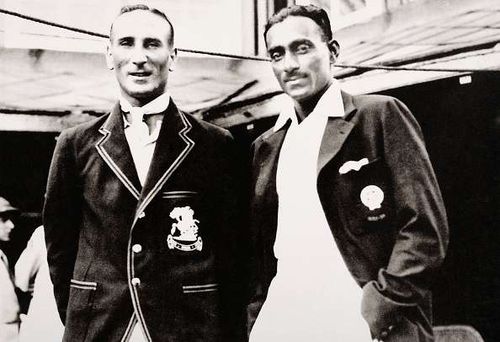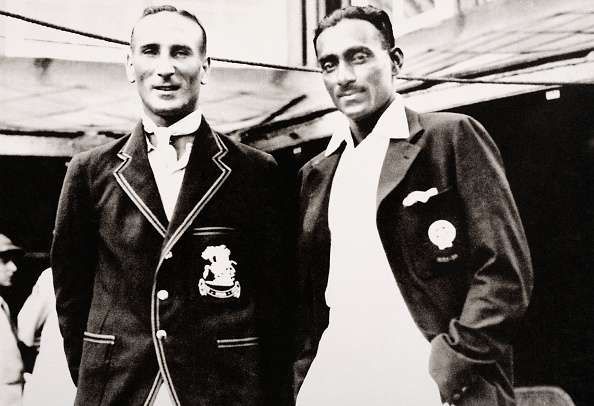
The A to Z of Indian cricket
Cricket is more than just a sport for more than a billion Indians, it is a religion. It is one of those few things that unite Indians irrespective of what background they come from. Over the years, India’s performance in the cricketing arena has given their fans lots to cheer about, thereby strengthening their bond with the game.
In this article, we bring to you the A-Z of Indian cricket, players, grounds, officials, tournaments, all of whom make Indian cricket what it is.
A: Ajit Wadekar
Sourav Ganguly is often credited for teaching the Indian team how to win overseas. However, even before Ganguly was born, Ajit Wadekar had laid the blueprint for India’s success overseas.
Blessed with a squad that consisted of Sunil Gavaskar, Gundappa Vishwanath and the famous spin quartet of Bedi, Prasanna, Chandrasekhar and Venkataraghavan, Wadekar led the Indian team to series wins over England and West Indies on their home turf in 1971.
Honourable Mentions: Anil Kumble
B: Bombay Gymkhana
Having hosted the first ever test match on Indian soil, the Bombay Gymkhana holds a special place in the hearts of Indian cricket fans. Not only that, it also holds the distinction of having witnessed the first ever test century by an Indian batsman, courtesy of Lala Amarnath’s 118 in the game.
C: CK Nayudu
On the 25th of June 1932, India played its first ever test match at The Lord’s Cricket Ground. The Indian team was captained by CK Nayudu. Nayudu had shot to fame courtesy of a blazing 153-run knock he had played against a touring MCC team.
He captained India till 1936, after which no cricket was played for 10 years due to the second world war. In his honour, the BCCI hands out CK Nayudu Lifetime Achievement Award every year.
D: Dada
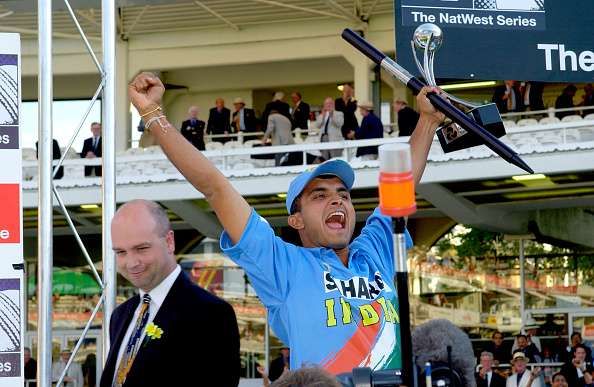
Sourav Chandidas Ganguly, affectionately known as the Dada of Indian cricket is the man responsible for moulding the modern-day Indian team into a fierce unit. One of India’s most successful captains, Ganguly taught the Indian team to breathe fire for fire.
Under his reign, the Indian team won a test series in Pakistan and tied series against strong Australian and English teams in their backyard. He also led the Indian team to the finals of the 2003 World Cup and an ICC Champions trophy (shared with Sri Lanka).
The Prince of Kolkata was also an accomplished batsman having scored more than 18000 runs in international cricket with an average in excess of 40.
Honourable Mentions: Dilip Vengsarkar
E: Eden Gardens
From Dada, we move on to Dada’s den, the Eden Gardens, the most iconic cricket ground in India. With a capacity of close to 67,000 people, it is the largest cricket ground in India and the second largest in the world.
And it’s not just the size of this ground that has the fans in awe of it, it is also due to the number of memorable matches it has witnessed. From a forgettable semi-final loss to Sri Lanka in the 1996 World Cup to a sensational post-follow on win against the mighty Aussies in 2001, the Mecca of Indian cricket has seen it all.
F: Feroz Shah Kotla
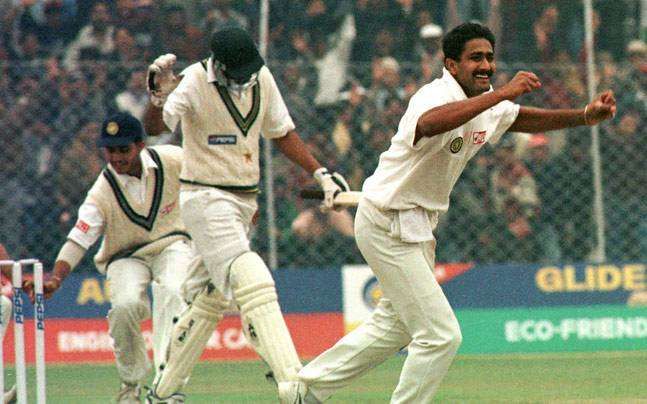
Any discussion about iconic grounds in India is incomplete without the mention of Feroz Shah Kotla. This ground in Delhi holds the distinction of hosting the first ever test match in independent India.
However, Kotla’s claim to fame is that it witnessed Anil Kumble’s incredible feat of picking up all ten wickets in an innings versus Pakistan. It also happens to be a fortress of sorts as India hasn’t lost a test match at this venue since 1987.
G: Gundappa Viswanath
Leave alone Indian cricket, Gundappa Vishwanath was one of the most graceful batsmen the world has witnessed. Though he was capable of playing every shot in the book, his square cut was an absolute treat to watch.
In a career that spanned 91 tests, ‘Vishy’ as Vishwanath was affectionately known, scored more than 6000 runs at an average of close to 42. With a knock of 112, he was one of the architects of India’s famous 400+ run chase against the mighty West Indies at Port of Spain in 1976.
Honourable Mentions: Gary Kirsten
H: Harsha Bhogle
For every Indian cricket fan growing up in the nineties, Harsha Bhogle was the voice of Indian cricket. The clarity with which he spoke, his neutral stance and his intriguing insights about the game made him a fan favourite. What made him all the more special was the fact that he never really had played the game.
Honourable Mentions: Harbhajan Singh
I: IPL
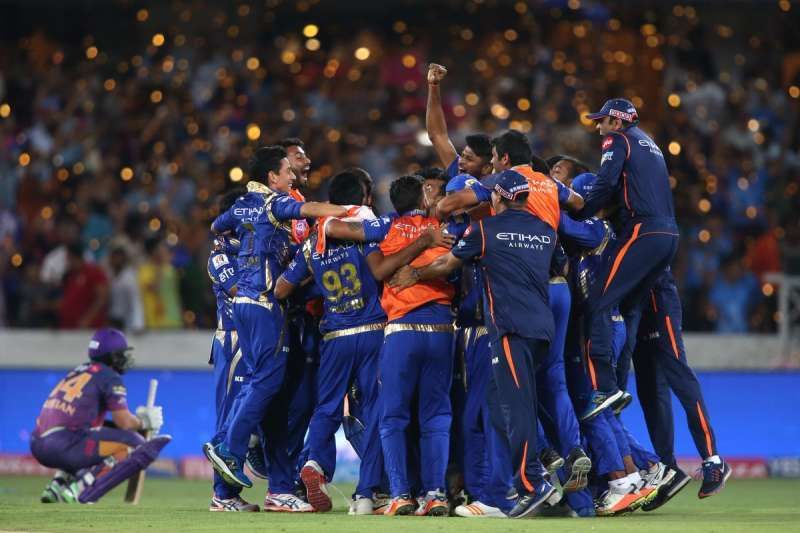
The Indian Premier League or the IPL as it is widely known, is arguably the biggest T-20 tournament in world cricket. Held in the months of April and May each year, this tournament is a huge hit with the Indian fans.
The who’s who of the cricketing world head to the IPL each year, thus lighting up the tournament. The recently concluded tenth season of the IPL had a viewership of an incredible 1.25 billion.
J: Jagmohan Dalmiya
The BCCI’s immense stature in cricketing circles is down to one man, Jagmohan Dalmiya. A businessman by trade, he revolutionised cricket administration in India. Dalmiya was responsible for the Cricket World Cup coming to the Indian subcontinent in 1987 and 1996.
He was the one who introduced the idea of selling television rights of cricket matches in India, thereby opening up an avenue for immense earnings for the BCCI. In 1997, he also became the first Asian man and the first non-cricketer to be elected as the President of the ICC.
Honourable Mentions: Javagal Srinath
K: Kapil Dev
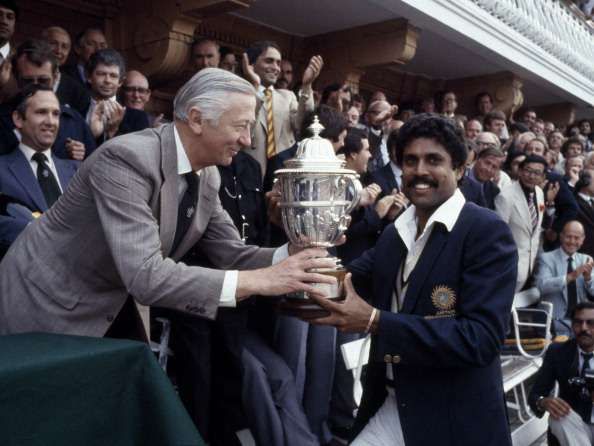
Kapil Dev’s stature and impact on Indian cricket can be gauged from the fact that even after 23 years of his retirement, the Indian team has not been able to find an ideal replacement for him. Hailing from Haryana, Dev was effective with both bat and ball in hand and is widely regarded as one of the greatest all-rounders of all time.
In 1983, ‘Paaji’, as Kapil is fondly known, led an underdog Indian team to an unprecedented World Cup win against a mighty West Indies team. The 58-year old also happens to be the only cricketer to have scored more than 5000 runs and picked more than 400 wickets in test cricket.
His haul of 434 test wickets stood as a world record for six years before Courtney Walsh went past it.
L: Lala Amarnath
Having scored the first ever test century by an Indian batsman, Lala Amarnath is widely regarded as the Father of Indian cricket. He was also the first test captain of independent India. In his 24-match test career, Amarnath racked up 878 runs and also picked up 45 wickets.
A majority of his test career was disrupted by the second world war. However, he made amends for it by amassing more than 10,000 runs and picking up close to 500 wickets in first class cricket. His sons, Mohinder and Surinder Amarnath also went on to play for the Indian team.
M: Mahendra Singh Dhoni
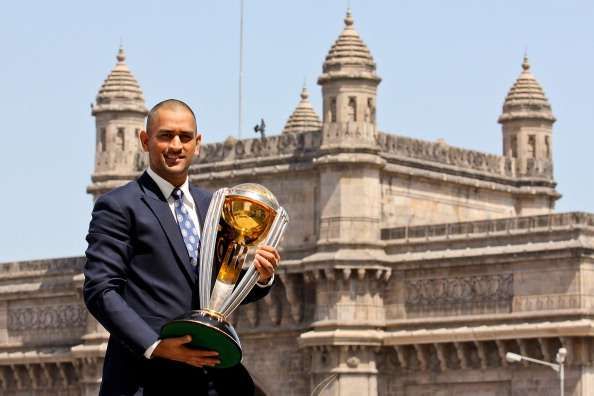
The father of Indian cricket is followed by one of the greatest captains of the Indian team, Mahendra Singh Dhoni. Known for his calm demeanor and unorthodox style of cricket, Dhoni is the quintessential smalltown hero that Indian sport has often cried out for. He is the only captain to have won the complete ICC set (ICC World Cup, Champions Trophy, World T20 and ICC Test mace).
Dhoni’s exploits with the bat, especially in the limited overs, has led to him being branded as one of the best finishers in the history of the game. The iconic six which ended the 2011 World Cup in India’s favour bears testimony to his finishing abilities.
Honourable Mentions: MAK Pataudi, Mohinder Amarnath
N: Nawab of Najafgarh
Batting Manual: 1) Keep eyes level and head still
2) Knees slightly bent, feet parallel and either side of the crease
3) Move to the pitch of the ball and go through with the shot
Virender Sehwag’s Manual: LOL!! 1) Whistle/sing as you take your stance
2) Decide what shot you want to play, no matter what
3) See the ball, hit the ball
The few pointers above are good enough to explain why Virender Sehwag is known as the Nawab of Najafgarh. Though he had his own unique style, he was strikingly effective. For the duration of his career, the 38-year old terrorised bowlers all over the world.
Sehwag’s aggressive batting was pivotal to India’s success in the late 2000’s and early 2010’s. He was the first Indian batsman to register a score in excess of 300 in tests and is also one of the few batsmen to have scored two triple hundreds in tests. He also has an ODI double hundred to his name.
O: One Hundred Hundreds
Probably the most iconic number in cricket after the 99.94 average of Sir Donald Bradman is one hundred, the exact number of centuries scored by Sachin Tendulkar in international cricket. Sachin’s 51 hundreds in tests and 49 hundreds in one day internationals, made up the perfect hundred.
Indian cricket is really blessed to be associated with a record that is unlikely to be beaten in the near future.
P: Pakistan (precede with a haaye haaye for goosebumps)
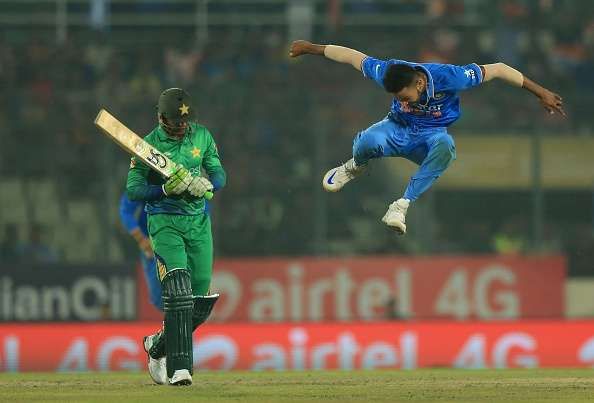
The arch enemy. The one team that we cannot lose against. The one match that defines careers. These phrases are few of many which describe the importance of Pakistan in Indian cricket.
If cricket unites Indians, a game against Pakistan makes them inseparable. Though the overall results in tests and ODI’s are skewed in favour of Pakistan, more importantly, India has never lost against Pakistan in a World Cup game.
Honourable Mentions: Poly Umrigar
Q: Quartet
The Indian spin quartet of Erapalli Prasanna, Srinivas Venkataraghavan, Bhagwat Chandrasekhar and Bishen Singh Bedi wreaked havoc among opposition ranks in the late sixties and the seventies. Though the four of them played only one test together, they orchestrated several famous Indian victories including series wins against England and West Indies in their backyard and test wins in the challenging conditions of Australia and New Zealand.
The quartet possessed immense variety as Prasanna and Venkataraghavan were off spinners, Chandrasekhar was a leg spinner and Bedi was a slow left arm bowler. Their combined record reads an impressive 853 test wickets in 231 games.
R: Rahul Dravid
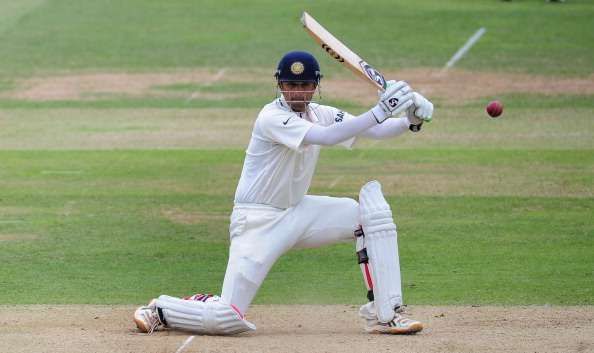
Rahul Dravid is the epitome of where sheer grit and determination can take you in the world of sport. He was completely aware of his limitations and therefore, instead of trying out too many fancy things, just stuck to a textbook style of cricket built around patience and an unwillingness to give up.
Dravid’s defence was impeccable, which led to him being nicknamed ‘The Wall’. In 164 games for India, the former Indian captain scored 13,288 runs at a staggering average of 52.31. Though he was widely regarded as a test player, he was immensely successful in ODI’s too with a tally of more than 10,000 runs at 39.16 apiece.
Honourable Mentions: Ravi Shastri
S: Sachin Tendulkar
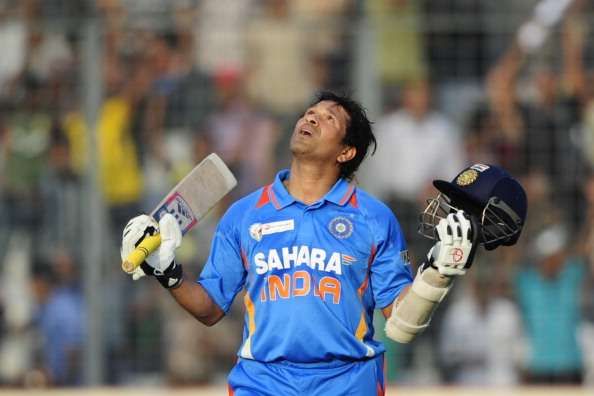
Peter Roebuck, the famous Australian journalist once said, “On a train from Shimla to Delhi, there was a halt at one of the stations. The train stopped by for few minutes as usual. Sachin was nearing a century, batting on 98. The passengers, railway officials, everyone on the train waited for Sachin to complete the century. This genius can stop time in India.”
The anecdote above is sufficient to convey the importance of Sachin Tendulkar not just in Indian cricket, but in India as a whole. In a glorious career that spanned 24 years, Tendulkar set countless records. Often, in the late nineties and the early 2000’s, Indian fans used to pin their hopes on him and televisions were switched off once he got out.
Such is his impact on the game, that he is often called as ‘The God of Cricket’. When he won the World Cup in 2011 after five failed attempts, the entire nation shed tears of joy with him. Two years later, in 2013, the entire cricketing fraternity experienced a sense of bereavement as the Master Blaster retired from the game.
Honourable Mentions: Sunil Gavaskar
T: The Fab Five
Sachin Tendulkar, Sourav Ganguly, Rahul Dravid, VVS Laxman and Virender Sehwag made up the fab five of the Indian team in the previous decade. These five extraordinary batsmen ushered in a golden era for Indian cricket as they blunted one bowling attack after another.
Their combined careers read an incredible 53,788 runs across 715 tests at an average of close to fifty.
U: Under-19 Cricket
Under-19 cricket is often regarded as the first step in the journey towards playing for the national team. The sheer amount of talent coming into the Indian team gives a fair idea of how good the setup for U-19 cricket is in India. Over the years, it has thrown up several prominent faces such as Mohammad Kaif, Yuvraj Singh, Virat Kohli and Ravindra Jadeja.
India is also the joint most successful team at U-19 World Cups having won three of them. With Rahul Dravid at the helm of the current U-19 team, one can only expect the Indian U-19 setup to improve in years to come.
V: Virat Kohli
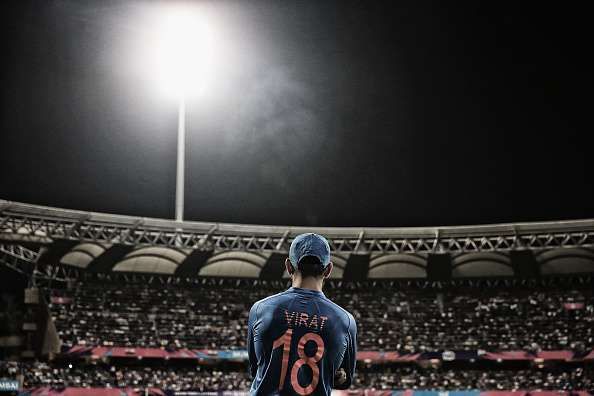
The current captain of the Indian cricket team and one of the best batsmen in world cricket at present, Virat Kohli represents the gen next of Indian cricket. He plays his game with flair and expresses himself without any inhibitions whatsoever. Though he has been on the international scene for less than a decade, he has achieved what most cricketers only dream of achieving.
At the age of 28, his trophy cabinet boasts of a World Cup, a Champions Trophy and a test championship mace. Moreover, the former India U-19 captain is already being dubbed as one of the best run chasers ever, courtesy of the countless valuable knocks he has registered during run chases.
Given that Virat has a penchant for leadership and his hunger to keep improving his game, India is certain to win many laurels under his reign.
Honourable Mentions: VVS Laxman, Vijay Merchant
W: World Cups
World Cups are the tournaments with paramount importance and a team’s stature in a sport is often decided by how well it performs in these tournaments. And, we can proudly say that the Indian team has not disappointed on this front.
The Men in Blue have won two World Cups, one in 1983 and the other in 2011. With 46 wins, they also have the second most number of wins in ICC World Cups. Team India created history when it became the first team to win the ICC World T20 in 2007. Even in this format of the World Cup, India is the second most succesful team with 20 wins.
X: XX Chromosome, i.e, Indian Women’s Cricket Team
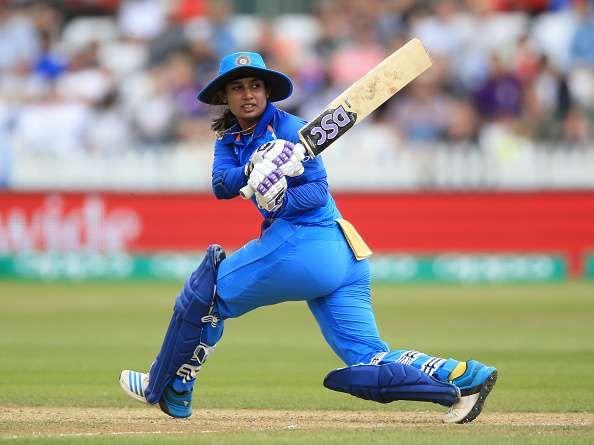
Just like all other walks of life, Indian Women are making giant strides in the field of cricket too. In recent times, there has been a marked improvement in the performance of the Women in Blue, leading to many fans closely following the team.
Though they are yet to win a major ICC tournament, the Indian ladies are slowly and surely getting there. Members of the current team hold several international records few of which are listed below:
1) 16: The second highest number of consecutive wins achieved in Women’s ODIs(Feb 2016-May 2017)
2) 5852: Mithali Raj, second most number of runs in Women’s ODIs
3) 185: Jhulan Goswami, most career wickets in Women’s ODIs
With this kind of talent at their disposal, one can only hope that the Indian women go the distance in the ongoing ICC Women’s World Cup.
Y: Yuvraj Singh
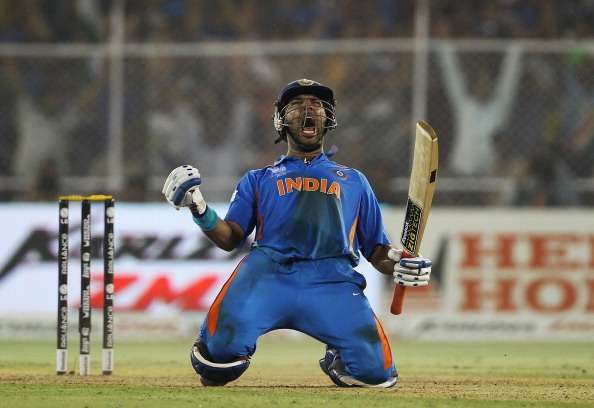
When it comes to major ICC tournaments, India has a very simple equation for success. Yuvraj Singh plays well = India wins the tournament. This equation has been proven true thrice, at the 2000 U-19 World Cup, the 2007 World T20 and the ICC 2011 World Cup.
In fact, at the U-19 World Cup and the 2011 World Cup, the 35-year old was the Man of the series. This in itself underlines the importance of Yuvraj to Indian cricket. His strokeful batting is a treat to watch, his part time slow left arm bowling fetches vital breakthroughs and he is also one of the better fielders in the Indian team.
The six sixes that the Punjab dasher smashed off Stuart Broad’s bowling is one of the best moments in the history of the game.
Z: Zaheer Khan
India has always been known to produce the best batsmen. Consequentially, the bowlers aren’t talked about much. However, it is often said that you need to pick twenty wickets to win a test match and Zaheer Khan was one bowler who complimented the efforts of the Indian batsmen.
India’s rise to the numero uno ranking in tests in the earlier part of this decade was engineered in equal parts by India’s batsmen and Zaheer’s inch perfect bowling. He was also instrumental in India’s success at the 2011 World Cup as he finished the tournament as the joint highest wicket taker with a haul of 21 wickets.
